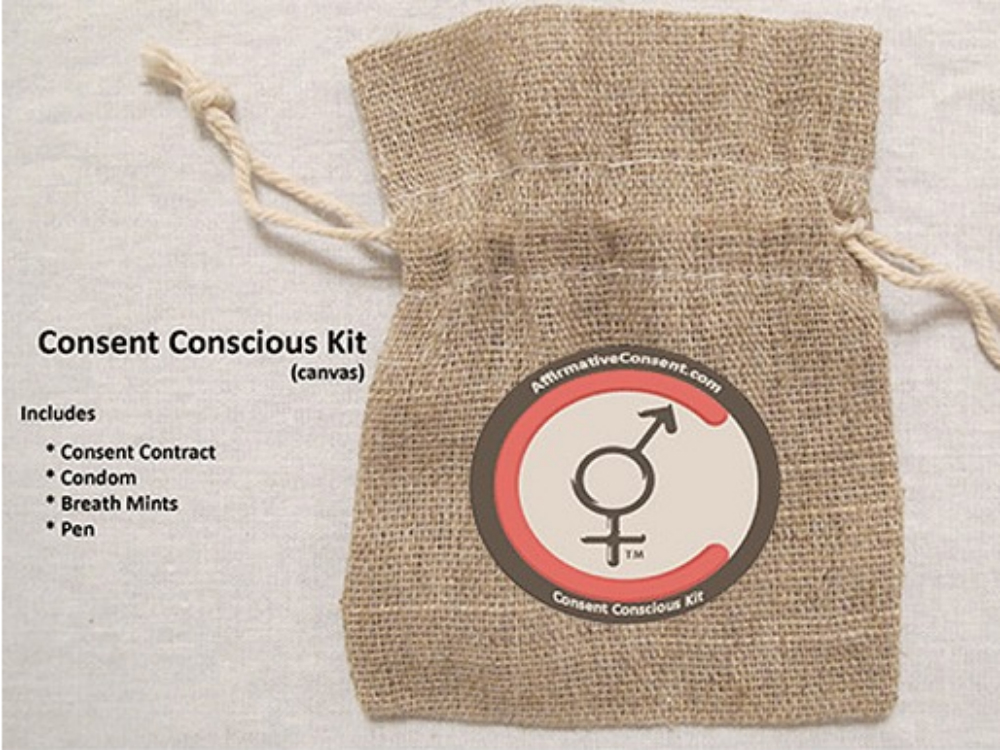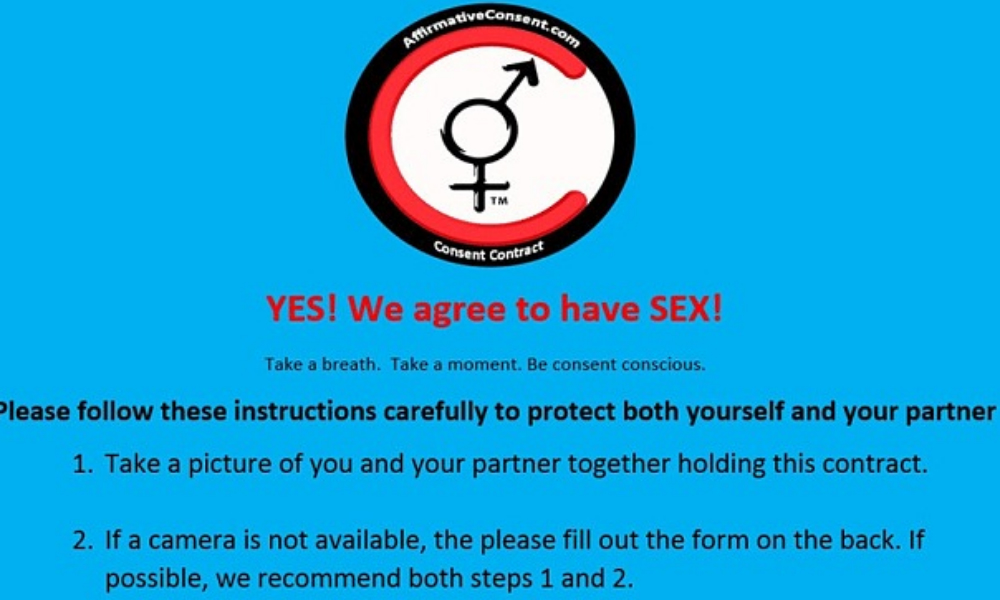What Are Consent Contracts? (And Why, Oh God Why, Are They A Thing?)
The following news story is less of a news story, and more of a rant. Just a heads up.

Celebrity news, beauty, fashion advice, and fascinating features, delivered straight to your inbox!
You are now subscribed
Your newsletter sign-up was successful
The following news story is less of a news story, and more of a rant. Just a heads up.
Here's a novel idea to put out there: how about men stop raping women?
How about they treat sexual intercourse as something that should only be fun when both participants want to participate?
How about, if a guy really, really wants sex, but the woman that he's with is so drunk she can barely stand up, or her eyes keep gazing off into space and she's slurring her vowels when she talks, he just goes and has a [instert preferred slang word for 'masturbate' here] in the bathroom? Or, better yet (especially for the bathroom towels) how about he just waits until the morning, and sees if she still wants to do it then?
How about if there's any hint of doubt in the man's mind that the woman he's with might regret this come sunrise, he just doesn't do it?
After all, nobody's life was ever ruined by not being able to have an orgasm on a night out.
It sounds straightforward. It sounds like it shouldn't be all that difficult. And it sounds like common sense.
Celebrity news, beauty, fashion advice, and fascinating features, delivered straight to your inbox!
So forgive us if we're a bit angry about the news that 'consent contracts' are becoming a thing.
As it stands, one in three female UK university students says she's been sexually assaulted. That is a phenomenally - and unacceptably - high statistic. In America, it's similarly high: 17% of undergraduates have experienced unwanted sexual behaviour, and one in five are reported to have been victims of assault.

Something needs to be done. Oxford and Cambridge universities have tackled it by holding compulsory 'sexual consent classes' during freshers week, which all new students must attend.
But now, in America, distributing 'consent kits' are being distributed on campus in an attempt to help reduce the number of female students who have been victims of sexual assault. As a talking point, it serves its purpose (sure, we're shouting rather than 'talking' per se, but let's not dwell on that).
Unfortunately, it's not that straightforward. Because while the kits contain condoms (useful) and some breath mints (useful, but entirely unrelated), they also contain a contract, for women to sign and confirm that they're happy to proceed with sexual intercourse.
(Oh, there's also a pen. To sign it with.)
And that's really not OK (not the pen. The pen makes sense). Because the number of sexual assault cases that actually reach court is already horrifyingly low, and women are already dealing with a society that blames the victim - that's if they're believed at all.
Plus, who knows what could happen after a woman signs the contract. Consent is contextual - if a woman agreed to have sex with a man she'd met on a night out, signed the contract, and then discovered he was dating her best friend, she could change her mind. If he pressured her to go ahead with the sexual act, then that's assault - but the contract would undermine her testimony. Similarly, if a woman had agreed to have vaginal sex - but her partner forced her into anal intercourse, then that's assault too. And the contract would undermine her testimony yet again.
So to put any level of responsibility on the woman 'not to be raped' is categorically wrong. It's not about making women consent more clearly. It's about men bothering to check in the first place.
Images: Instantconsent.com
The leading destination for fashion, beauty, shopping and finger-on-the-pulse views on the latest issues. Marie Claire's travel content helps you delight in discovering new destinations around the globe, offering a unique – and sometimes unchartered – travel experience. From new hotel openings to the destinations tipped to take over our travel calendars, this iconic name has it covered.